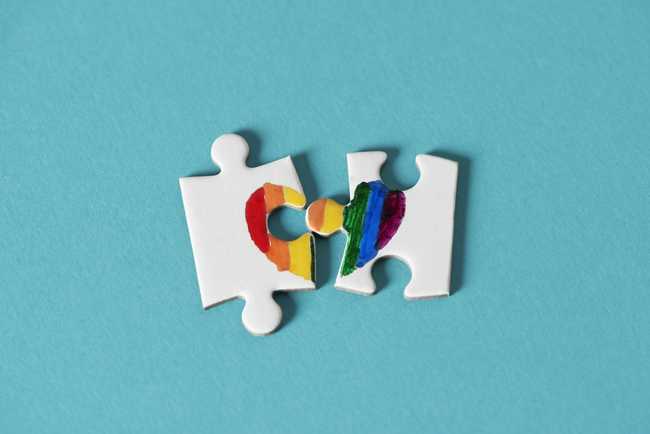Signs That You’ve Outgrown Your Partner
A recent study found that most people who remain in unhappy relationships do so for the sake of their partner. In other words, they’re not staying because they believe that things will improve but rather because they don’t think their partner could take the breakup.
If there are red flags in a relationship but you continue to stick around, we understand that you feel like you’re doing the right thing. However, take into account the ways that your negative relationship could affect your health in the short and longterm.
Research has shown that people who stay in bad or unhealthy relationships not only have increased mental health issues but have a heightened risk of physical health problems. These include high blood pressure and even fatal heart conditions.
If you’re wondering how to know when your relationship is over, read on. We’re going to talk about some of the red flags that indicate that it’s time to move on.
Your Goals in Life Are Different
At some point in your relationship, discussions of the future will arise. These tend to encompass big things like where you want to live, what job you want to pursue, and whether or not you want to have children.
It’s okay and normal to have some disagreements and to make compromises for one another. However, everyone has a handful of goals in life that they shouldn’t have to compromise. In fact, you may have some goals that differ so much from your partner’s goals that a compromise simply can’t be reached.
Take, for example, the subject of having children. If one partner has always wanted children and one partner has never wanted children, how can this be resolved? No matter what, one person is going to be unhappy.
You’re Moving in Different Directions
The direction you’re moving in falls into a similar category as the goals you keep. The difference is that your direction correlates not just with what you hope to achieve, but what you’re actively achieving (or not achieving) in the present.
This applies to more than the concrete directions you’re moving in with, say, your career or your education. Consider the direction you’re moving in with your mental health. Perhaps you’ve been suffering from depression and have begun seeking therapy but your partner, also suffering from mental health problems, is not putting in the work to cope and heal.
When we move in different directions, it becomes harder to come together as a couple. What’s even more of a red flag in a relationship is when one partner’s direction is either harmful or inhibitive to the other’s.
The Patterns in Your Relationship Aren’t Healthy
As relationships develop, we develop patterns with our partner that create a sense of unity and continuity. If these patterns are healthy, this is a great way to sustain the relationship.
If the patterns are unhealthy, they’re going to cause harm to both partners. It may also be a lot harder to break those patterns for yourself when they’re reinforced by your partner’s desires or behavior.
The “Bad Days” Are Becoming Bad Cycles
No relationship escapes a few bad days here and there. It’s normal to argue and even to fight, but only on occasion, especially if these fights are high-stakes.
Perhaps your partner gets angry with you when they’re in a bad mood and apologizes later, rather than recognizing their behavior before it gets away from them. It happened from time to time in the past, but now you’re noticing that it’s happening more frequently or the bouts of anger are lasting for longer periods of time.
Bad cycles are an indication that your partner either doesn’t recognize that their behavior is harmful or that they do and simply won’t work on it. Either way, these bad cycles are exhausting, manipulative, and leave you on edge.
You’ve Realized the Relationship is Codependent
When it comes to codependency, it takes two to complete the cycle. Both partners have a role to play and both need to play it. Unlike dependence, where feelings are mutual and care is both given and received equally, codependency entails that one partner needs the other while the other partner needs to be needed.
This may not sound too bad, but it’s actually a huge red flag in a relationship.
Partner A cannot feel positive emotions or self-worth without the constant feedback and approval of Partner B. In order to fulfill these needs, Partner A will alter their behavior or make large sacrifices that attract the attention of Partner B.
Meanwhile, Partner B enjoys this role and may even take advantage of it. It makes them feel powerful or satisfied that they have the ability to both give and take away Partner A’s happiness, health, and safety.
If this sounds familiar, it is important that you leave your relationship. By the very nature of your codependent relationship, you cannot fix these personal issues together. This goes for both Partner A and Partner B.

Being Together is Draining
We’ve all heard the metaphor about introverts and extroverts that goes as follows: introverts are drained by interactions with others, while extroverts are recharged. That being said, even introverts should feel recharged (or at the very least, not drained) by the presence of certain people, including partners.
If you find that spending time with your partner leaves you feeling tired, unhappy, or frustrated, break down the reasoning. It might be that they treat you poorly or it might be that you’ve simply grown weary of their actions and mannerisms you once found endearing. Both are valid reasons to move on from the relationship.
Don’t Ignore Red Flags in a Relationship
When you start to see red flags in a relationship, pay attention to them. They may indicate small issues that can be addressed and overcome with proper communication, or they may indicate that your relationship is not going to work.
If you aren’t leaving a bad relationship out of a concern for your partner, ask yourself why you aren’t granting yourself the same care and consideration. You may find that you’re neglecting your own mental health issues.
Even if you are married, there is good news for people who are divorced. For whichever reason you have to stay in your relationship, you should be considering the grand scheme of how it may affect you, and even your partner or children.
We believe that taking care of your mental health is important, and we also believe that you shouldn’t have to do it alone. If you need help adjusting or managing your mental health, contact us today to find out what we can do for you.









Leave a Reply
Want to join the discussion?Feel free to contribute!